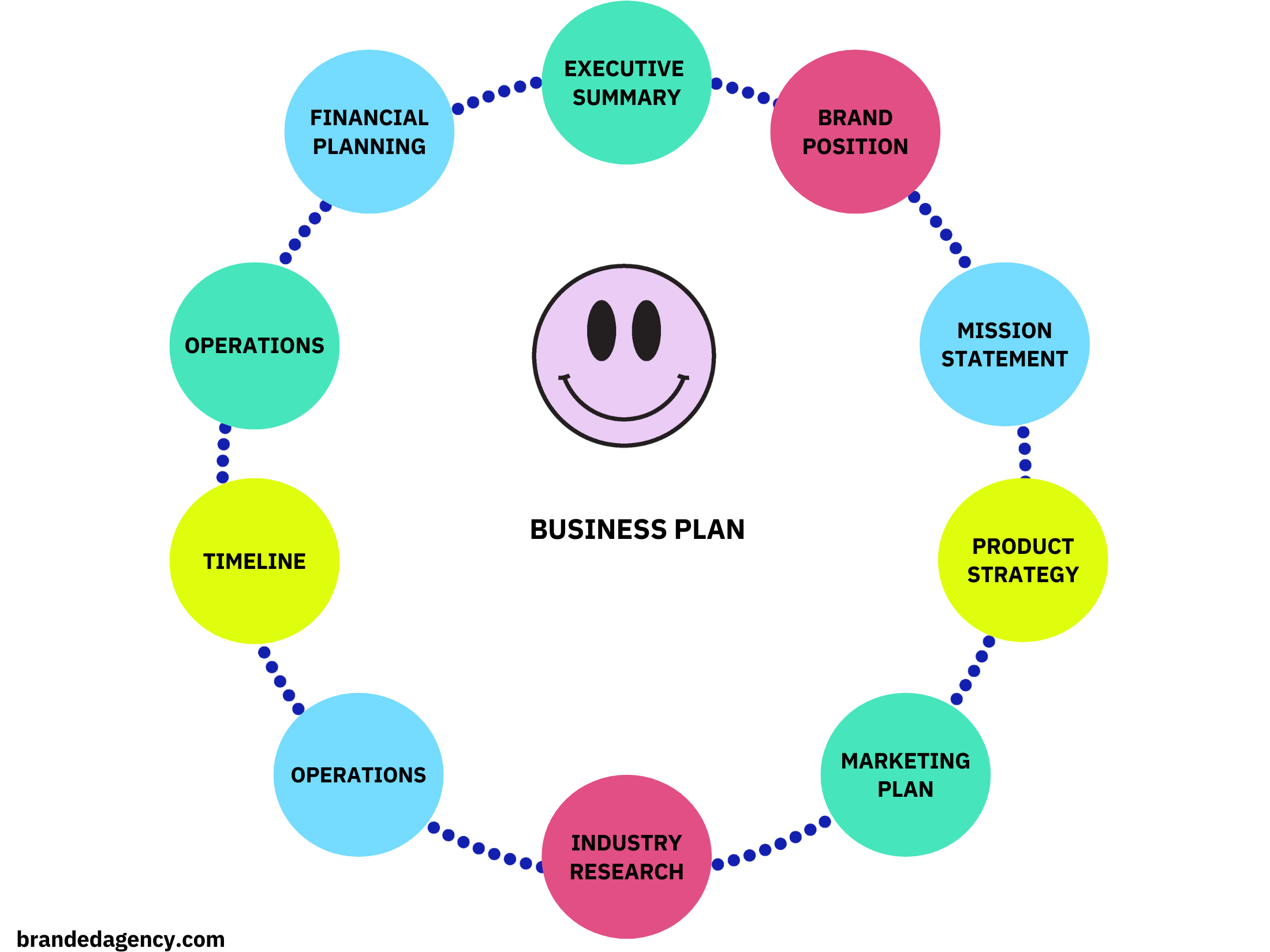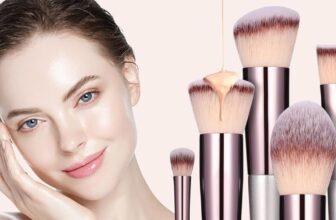Starting a skincare business can be exciting and rewarding. Many people dream of creating their own brand.
But where do you begin? The skincare industry is booming, with growing demand for natural and effective products. More people care about their skin than ever before. This trend opens doors for aspiring entrepreneurs. Whether you want to develop a unique product line or focus on skincare education, a solid plan is essential.
Knowing the steps involved can make the process smoother. From understanding your target market to developing a business strategy, each decision counts. Get ready to explore the key steps to start your skincare business and turn your passion into a thriving venture. Your journey starts here!
Introduction To The Skincare Industry
The skincare industry is booming. Many people care about their skin. They want products that help. This makes starting a skincare business appealing. Understanding the market is key. Let’s explore current trends and growth potential.
Current Market Trends
Today, consumers prefer natural and organic products. They seek items free from harmful chemicals. Eco-friendly packaging is also important. Many buyers want brands that respect the planet.
Social media plays a big role. Influencers showcase products to large audiences. This trend boosts sales and brand awareness. Companies must use social media wisely.
Personalization is another trend. Customers like products made for their specific needs. Customizable skincare routines attract many buyers. This trend offers a unique selling point.
Potential For Growth
The skincare market is expected to grow significantly. More people are investing in skincare routines. This growth offers opportunities for new businesses.
Emerging markets show great potential. Countries in Asia and Africa are increasing demand. These markets are becoming important for skincare brands.
Innovative products can capture attention. Technology in skincare leads to new solutions. Businesses that adapt to change will thrive.

Credit: www.brandedagency.com
Identifying Your Niche
Finding your niche is key to starting a skincare business. It helps you focus on a specific audience. This makes your brand stand out. Knowing your niche guides your product choices. It also shapes your marketing strategies.
Analyzing Customer Needs
Start by understanding what customers want. Research different skincare problems. Look for gaps in the market. Talk to potential customers. Ask them about their skincare struggles.
Use surveys or social media polls. This helps collect valuable feedback. Identify trends in skincare preferences. Pay attention to popular ingredients. Know what your target audience values.
Differentiating Your Brand
Stand out in a crowded market. Define what makes your brand unique. Focus on your brand’s mission and values. Choose a specific style and tone for your brand.
Create a memorable brand name and logo. Use packaging that reflects your brand identity. Highlight unique ingredients or methods you use. Tell a story that connects with your customers.
Creating Your Skincare Products
Creating skincare products is an exciting journey. This process involves careful planning and creativity. You need to develop items that people will love. Focus on quality and effectiveness. Let’s explore how to do this.
Product Development Process
The product development process starts with research. Understand your target audience. Know their skin types and concerns. Gather information about existing products. Identify what makes them successful or not.
Next, create a product concept. Think about what you want to offer. Will it be a moisturizer, serum, or cleanser? Define the benefits of your product. This will guide your formulation.
Then, create a prototype. Mix your ingredients and test them. Adjust the formula based on feedback. This step is crucial. It helps you refine the product before launch.
Selecting Quality Ingredients
Selecting quality ingredients is vital for skincare products. Use natural and safe components. Check for allergens and irritants. Your customers will appreciate gentle formulas.
Focus on active ingredients that provide real benefits. Look for antioxidants, vitamins, and hydrating agents. Research their effectiveness and sourcing.
Always prioritize sustainability. Eco-friendly ingredients appeal to many consumers. This choice shows your commitment to the environment.
Testing your ingredients is essential. Ensure they work well together. This helps avoid negative reactions. Quality control should be a top priority.
Compliance And Regulations
Starting a skincare business requires understanding compliance and regulations. These rules ensure your products are safe for customers. Following these guidelines helps build trust and credibility.
Understanding Fda Guidelines
The FDA oversees skincare products. They ensure safety, labeling, and marketing claims are clear. Here are some key points:
- Cosmetics must not be harmful.
- Ingredients should be safe.
- Labels must list all ingredients.
- Claims must be truthful.
Familiarize yourself with the FDA regulations. Check their website for updates. This will help avoid legal issues.
Certifications And Safety Standards
Certifications boost your product’s credibility. Here are some important ones:
| Certification | Description |
|---|---|
| FDA Approved | Products are safe and meet regulations. |
| Good Manufacturing Practices (GMP) | Ensures products are consistently produced. |
| ISO Certification | International standards for quality management. |
Consider these certifications for your skincare line. They can help you stand out in a crowded market.
Always prioritize safety in your formulations. Conduct thorough testing before launching products. This ensures customer satisfaction and loyalty.
Branding And Packaging
Branding and packaging are crucial for your skincare business. They create first impressions. Strong branding builds trust. Good packaging attracts customers. Let’s explore how to design your brand and choose the right packaging.
Designing Your Brand Identity
Your brand identity includes your logo, colors, and fonts. These elements tell your story. Follow these steps to create a strong brand:
- Define Your Values: What does your brand stand for?
- Know Your Audience: Who will buy your products?
- Create a Unique Logo: Make it simple and memorable.
- Choose Colors Wisely: Colors evoke emotions. Pick ones that reflect your brand.
- Select Fonts: Use clear and readable fonts for your packaging.
Consistency is key. Use the same branding across all platforms. This helps your audience recognize you.
Eco-friendly Packaging Options
Consumers care about the environment. Eco-friendly packaging can set you apart. Here are some options:
| Type of Packaging | Benefits |
|---|---|
| Recyclable Materials | Easy to recycle and reduces waste. |
| Biodegradable Packaging | Breaks down naturally, harming the environment less. |
| Refillable Containers | Encourages reuse and lessens plastic use. |
| Plant-Based Plastics | Made from renewable resources, better for the planet. |
Choose materials that match your brand values. Highlight your eco-friendly choices in marketing. This attracts environmentally conscious customers.

Credit: www.youtube.com
Marketing Your Skincare Line
Marketing your skincare line is key for success. It helps you reach customers. Good marketing builds trust and boosts sales. Focus on online presence and social media.
Building An Online Presence
Start with a professional website. Your website should reflect your brand. Include these elements:
- Clear product descriptions
- High-quality images
- Easy navigation
- Contact information
Consider a blog. Share skincare tips and product benefits. This builds authority. Use SEO strategies to improve visibility.
Set up an online store. Offer easy purchasing options. Include various payment methods. Make the checkout process simple.
Leveraging Social Media
Social media is a powerful tool. Use platforms like Instagram and Facebook. Share engaging content regularly. Post photos, videos, and stories about your products.
Connect with your audience. Respond to comments and messages quickly. Use polls and questions to engage followers.
Collaborate with influencers. Choose those who align with your brand. This can expand your reach significantly. Here are some tips:
- Choose influencers with a loyal following.
- Negotiate clear terms for collaboration.
- Track engagement and sales from these partnerships.
Consider running ads. Target specific demographics. Use eye-catching visuals and strong calls to action.
Sales Channels And Distribution
Choosing the right sales channels and distribution methods is crucial for your skincare business. You need to reach your customers effectively. This can determine your success. Two main options exist: e-commerce and brick-and-mortar stores. Each has its strengths.
E-commerce Vs. Brick-and-mortar
E-commerce is a popular choice today. It allows you to sell products online. Customers can shop from anywhere. Here are some benefits:
- Wider reach to customers
- Lower overhead costs
- Flexible working hours
- Easy to track sales and customer behavior
However, brick-and-mortar stores also have advantages. They allow customers to see and feel products. Some benefits include:
- Personalized customer service
- Building trust and credibility
- Immediate product availability
- Creating a unique shopping experience
Your choice depends on your target audience and business goals. Consider starting with e-commerce to save costs. You can add a physical store later.
Managing Logistics
Logistics is key for any skincare business. It involves planning how to get products to customers. Here are some important steps:
- Inventory Management: Keep track of stock levels. Avoid overstocking or running out.
- Shipping Options: Offer multiple shipping methods. Consider cost and speed.
- Returns Process: Make returns easy for customers. This builds trust.
- Warehousing: Decide where to store products. This affects delivery times.
Using software can help manage logistics. It can simplify tracking and reporting. Focus on providing a smooth experience for customers. Happy customers lead to repeat sales.
Customer Engagement And Retention
Engaging customers helps build long-lasting relationships. Retaining customers saves money. Happy customers share their experiences. This can grow your skincare business.
Fostering Brand Loyalty
Brand loyalty is vital for success. Customers return if they trust your brand. Here are ways to foster loyalty:
- Create a strong brand story. Share your mission and values.
- Provide excellent customer service. Respond quickly and helpfully.
- Offer loyalty programs. Reward frequent buyers with discounts or gifts.
- Use social media. Engage with customers through posts and messages.
Consistent communication builds trust. Keep customers updated on new products or promotions.
Implementing Feedback Loops
Feedback loops help improve your business. They show you what customers like and dislike. Follow these steps to implement effective feedback:
- Collect feedback. Use surveys, social media, or email.
- Analyze the results. Look for common themes or issues.
- Act on the feedback. Make changes based on what you learn.
- Communicate changes. Let customers know how their feedback helped.
Regularly ask for feedback. It shows customers you care. This keeps them engaged.
Funding And Financial Planning
Starting a skincare business needs careful financial planning. Good funding can help you build your brand. Knowing your costs is key to success. This section covers startup costs and funding options.
Startup Costs Estimation
Estimate your startup costs early. This helps you understand how much money you need. Common costs include ingredients, packaging, and branding. You may also need to consider website development and marketing expenses.
Don’t forget about licenses and permits. These can add to your initial costs. Think about storage and equipment too. All these factors will help shape your budget.
Exploring Funding Options
Finding the right funding is important. You can start by using personal savings. This is a common option for many new business owners.
Another choice is loans from banks or credit unions. Research small business loans that suit your needs. Crowdfunding is also a popular method. Platforms like Kickstarter can help you raise money.
Consider seeking investors. They can provide capital in exchange for a share. Grants are another option but may have strict requirements. Explore all possibilities to find the best fit for your skincare business.

Credit: www.shopify.com
Scaling Your Business
Scaling your skincare business is vital for growth. This process means expanding your reach and increasing sales. Smart strategies can help you grow steadily. Focus on what works best for your brand.
Strategies For Growth
Start by improving your online presence. Use social media to connect with customers. Share tips, tutorials, and user reviews. This builds trust and attracts new buyers.
Consider partnerships with influencers. They can showcase your products to their followers. Choose influencers who align with your brand values.
Offer promotions and discounts. This can encourage first-time buyers. Keep loyal customers happy with exclusive deals.
Invest in email marketing. Send updates about new products and sales. Personalize your messages to increase engagement.
Entering New Markets
Research new markets where your products can shine. Analyze trends and customer preferences. This helps you adapt your offerings accordingly.
Explore international markets. Understand regulations and cultural differences. Tailor your marketing strategies to fit local customs.
Consider expanding your product line. Introduce items that complement your current offerings. This can attract a wider audience.
Stay updated on industry trends. Attend trade shows and networking events. This helps you learn from others and discover new opportunities.
Frequently Asked Questions
How Do I Start A Skincare Business?
Starting a skincare business requires thorough research and planning. Begin by identifying your niche and target audience. Develop a business plan outlining your goals, products, and marketing strategies. Make sure to source quality ingredients and comply with regulations. Finally, establish your brand and promote it effectively.
What Licenses Do I Need For A Skincare Business?
You typically need a business license and may require specific permits for skincare products. Research local regulations to determine your requirements. Additionally, ensure your products comply with safety and labeling standards. Consult a legal expert to navigate the necessary paperwork and ensure compliance.
How Much Does It Cost To Start A Skincare Line?
The cost to start a skincare line varies widely. Initial expenses include product formulation, packaging, marketing, and business setup. On average, you may need anywhere from $5,000 to $50,000 to launch. Create a detailed budget to manage costs effectively and seek funding options if necessary.
How Do I Market My Skincare Products Effectively?
Effective marketing involves understanding your audience and utilizing various channels. Use social media platforms to showcase your products and engage with customers. Collaborate with influencers and bloggers to expand your reach. Consider email marketing campaigns and content creation to build brand awareness and drive sales.
Conclusion
Starting a skincare business can be exciting and rewarding. Focus on your passion and research your market. Build a strong brand that connects with customers. Quality products and good customer service are key. Stay updated on trends and listen to feedback.
Keep learning and adapting as you grow. With hard work and dedication, success is within reach. Your journey in skincare awaits. Embrace the challenges and celebrate your wins. Remember, every step counts in making your dream a reality.







